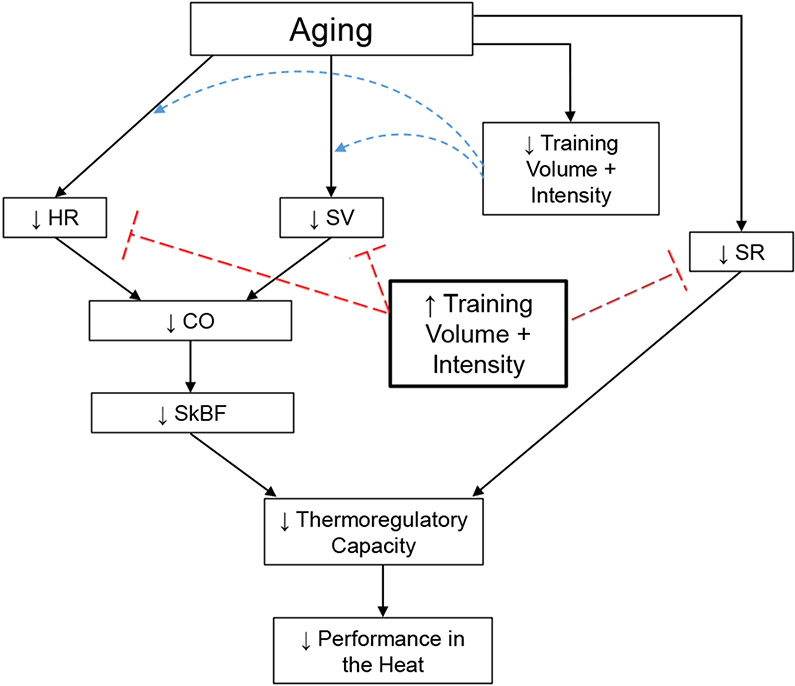Figure 4.
The influences of aging and/or training volume and intensity on cardiovascular and thermoregulatory responses during exercise-heat stress. Aging may independently reduce heart rate (HR) and stroke volume (SV), and therefore cardiac output (CO), during exercise in athletes, resulting in impaired redistribution of blood to the cutaneous circulation during exercise-heat stress. Similarly, primary aging is associated with reduced sweat rates (SR). Reduced training volume and intensity in aging athletes likely contribute to such declines, although it is unclear to what magnitude. Although speculative, maintaining and/or increasing training volume and intensity throughout the aging process may prevent or slow the age-related declines in these responses in lifelong athletes, thereby improving thermoregulatory capacity and performance during exercise-heat stress.

